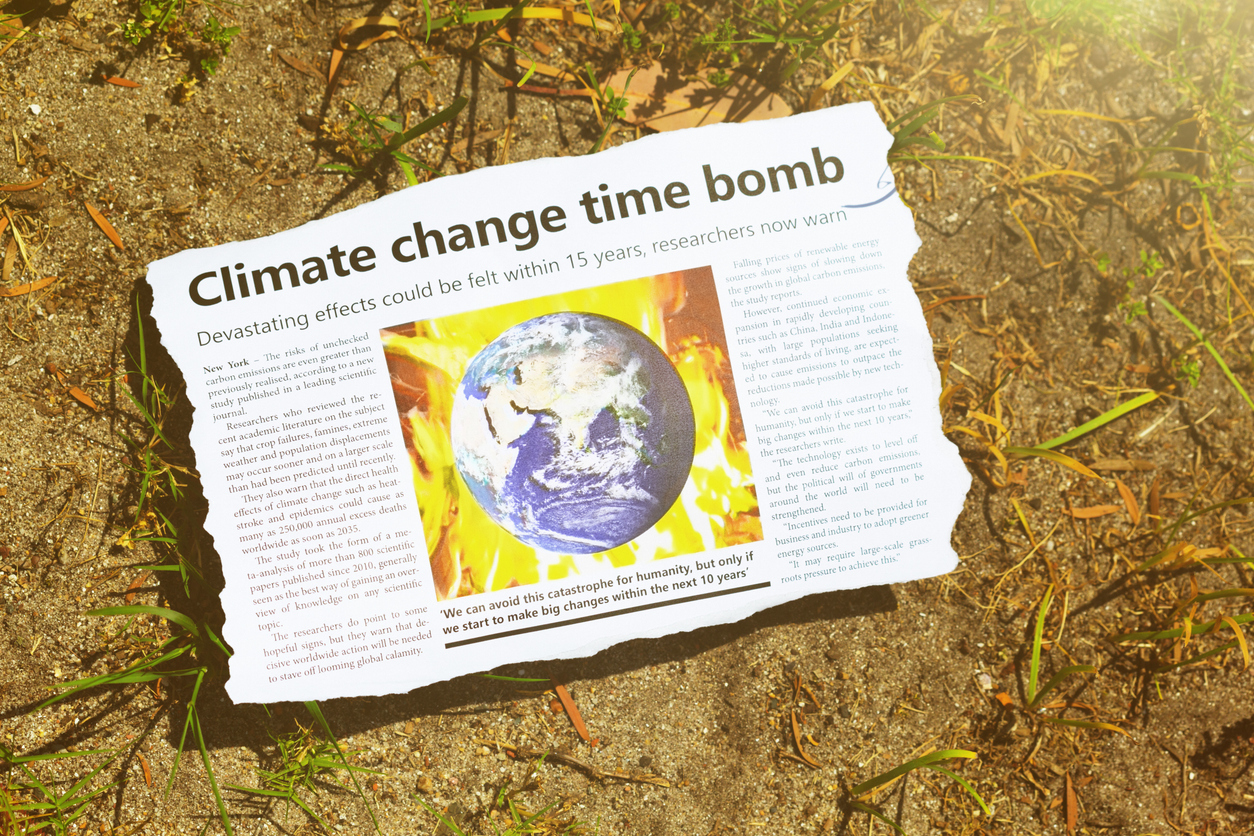Scientist behind BBC climate change ‘propaganda’ speaks out

A renowned scientist who played a key role in the BBC’s award-winning documentary “Climate Change by Numbers” slammed the film on Tuesday as “pure climate catastrophe propaganda.”
As its title suggests, the film uses statistics to convince viewers that global warming is an existential and impending threat to humanity. Dr. Norman Fenton, a mathematician and computer engineer, was one of three scientists chosen to co-present the documentary, with each assigned a number to discuss. Fenton was assigned the number 95, representing a 95% probability that at least half the global warming since 1950 has been man-made.
At the time, Fenton was becoming skeptical about climate change. He had followed controversies like Climategate, a 2009 scandal where thousands of climate research emails and documents were hacked from the University of East Anglia. The files called into question the scientific integrity behind the climate change narrative.
“[They] had revealed the extent of corruption and coercion amongst key academics who were pushing climate catastrophe narratives,” Fenton told The Climate Skeptic this week.
The mathematician had accepted the role in the BBC documentary because he knew “there were problems with that [95] number” and he wanted an opportunity to set the record straight for viewers. Instead, he found that his part was scripted to present the statistic as fact.
In reality, Fenton knew the figure came from a report by the International Panel on Climate Change (IPCC). But the number was not backed by any evidence and wasn’t included in the main report—it was a random, “dramatic” figure the IPCC presented to politicians so they could stir up climate hysteria. In fact, Fenton said, the mathematical models discussed in the IPCC’s report disputed the 95% figure on its fact sheet.
“It was a classic probabilistic fallacy,” Fenton said about the figure.
‘We have to lie for the greater good’
During filming, Fenton discussed the issues with the IPCC’s statistic. But BBC producers edited out his remarks and only included the scripted part that presented it as fact, which had been written by a professor of “climate science.” Fenton called the academic to discuss the lines, which he was “deeply uncomfortable with.”
“He assured me absolutely that there’s no problem with this. You can say this. It’s absolutely correct,” Fenton said.
But after the documentary was released, Fenton discovered that just months before, the professor had published a paper openly contradicting the IPCC statistic. When Fenton confronted him, the academic came clean.
“He basically effectively said, ‘We all have to lie for the greater good,’” Fenton recalled.
‘It was always about . . . Marxist control over societies’
He filed a formal complaint with the BBC over the misleading statistic, which he believes is why he was thereafter shunned from the spotlight. Meanwhile, his co-presenters, who didn’t challenge the narrative, went on to have lucrative careers with the BBC.
“[The BBC] just assumed that all academics had bought into the cultural Marxism that dominates the whole of academia,” he said. “There is no diversity of views. The tiny number of academics who were active in climate change and who did question the models and stuff like that have been completely marginalized.”
“It was always about greater control . . . over societies—you know, Agenda 2030 and all of that stuff,” Fenton continued. “All related to this. It was always that politically driven agenda which virtually every single academic is completely wedded into. The same as it was with COVID. They all bought into the narrative because it fitted this idea of almost socialist, communist, Marxist control over societies.”


.jpg)

